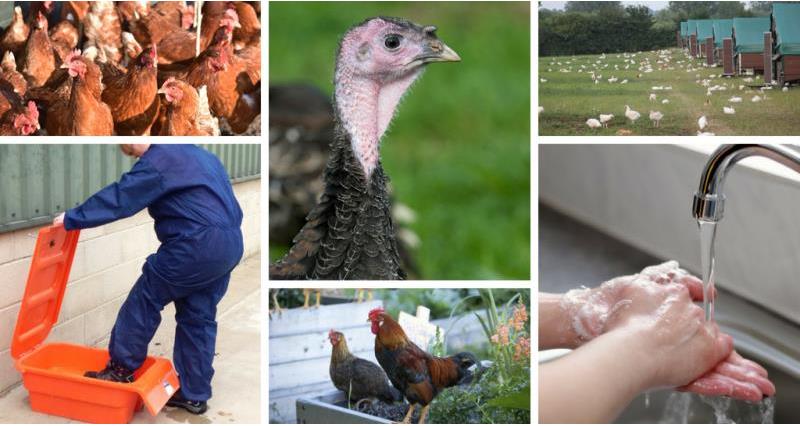Find out more about the clinical signs for Newcastle Disease or read the NFU briefing for more information (login to access)
What can you do?
If you keep poultry, whether it's a few chickens in your garden or a large commercial enterprise it is important to review your biosecurity and ensure you have appropriate protocols in place. You should pay particular attention to the following:
- Equipment - ensure all equipment is clean and do not share with other poultry enterprises
- Vehicles - disinfect vehicles on and off site and park away from poultry buildings where possible
- People - essential visitors only and foot dips and hand sanitisers at all entrances. If you or your staff have contact with other poultry make sure you take appropriate precautions before moving between sites, for example changing clothes, taking a shower and disinfecting footwear
If buying new birds it's important to check the origin of any birds you purchase and if they are being imported make sure they are accompanied by a health certificate.
If you vaccinate your birds to protect them against Newcastle Disease it's important to ensure the efficacy of the vaccination and always follow the manufacturers instructions for administration.
If you have any concerns about the health of your flock you should speak to your vet promptly.
Defra's outbreak assessment can be found here
Newcastle Disease - the clinical signs
Poultry species that are affected by Newcastle Disease may show the following clinical signs:
- Respiratory distress, such as gaping beak, coughing, sneezing, gurgling and rattling
- Nervous behaviour, such as tremors, paralysis and twisting of the neck
- Unusually watery faeces that are yellowish-green in colour
- Depression and a lack of appetite
- Produce fewer eggs which could be misshapen and soft-shelled
If you are concerned about the health of your birds then speak to your vet promptly.
Read the NFU briefing for more information about Newcastle Disease (login to access)
Read more from the NFU Poultry team...
